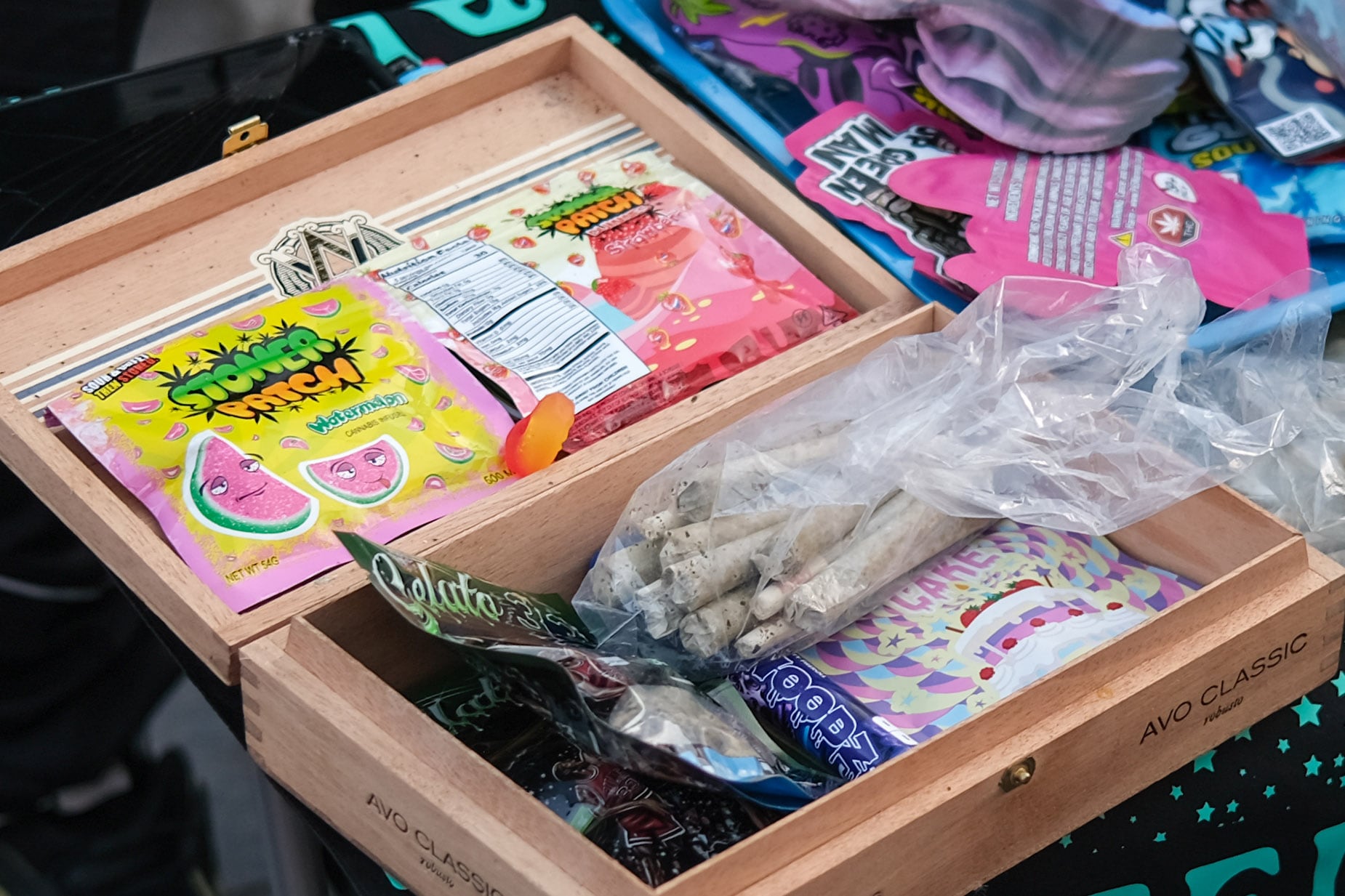Sign up for Chalkbeat Detroit’s free daily newsletter to keep up with the city’s public school system and Michigan education policy
Detroit school district leaders are urging lawmakers to help address what they describe as an “increasingly alarming” rise in student use of marijuana edibles and vape pens containing marijuana.
“A week of school rarely passes where a student is not taken to the hospital due to intentional or unintentional consumption of edibles,” Superintendent Nikolai Vitti and members of the Detroit school board said in a Thursday letter emailed to federal, state, and local lawmakers.
From the 2019-20 to the 2020-21 school years, the Detroit Public Schools Community District had 289 drug-related incidents. Between the 2021-22 and 2022-23 school years, there were 1,735 incidents. It is unclear how many of those incidents included marijuana use.
“This school year alone, we have already faced 745 drug-related infractions as of last week,” the letter said. The district leaders noted that the numbers have risen since marijuana was legalized in Michigan in 2019.
Vitti and board members are asking lawmakers to adopt safety measures that include:
- Requiring clear labeling that identifies edibles as including marijuana.
- Prohibiting manufacturers from using packaging that imitates non-marijuana candy.
- Providing each school with funding to purchase detection systems for vape pens and marijuana. The funding from this initiative would come from the profits and taxes collected from marijuana sales.
- Initiating a public awareness campaign, funded using marijuana legalization revenues, to educate the community on securing edibles and keeping them away from their children, as well as the potential risks of access to children.
The letter includes an image that shows some edibles packaged to resemble candies such as Skittles and Starburst.
“In some cases marijuana edibles are indistinguishable from regular candy brands, misleading our students and facilitating the ease of their distribution within our schools,” the letter said.
Attorney and DPSCD parent Marcia Spivey isn’t surprised by Vitti’s characterization of marijuana use in Detroit schools. She says she fought hard against zoning rules to try and keep marijuana dispensaries out of her neighborhood. In her work representing children in the foster system in Wayne County, she has clients “who are in middle school or high school that have admitted to using marijuana on a daily basis.”
She wants to see city leaders working more closely with school officials in the district, especially when it comes to policies such as the city’s marijuana ordinance.
“There needs to be better coordination in terms of legislation that impacts our families because the legislation that the City Council passes directly impacts the families in Detroit,” she said.
Parent Aliya Moore echoed Spivey — she wants to see the city and school district working in tandem on this issue. She said there should be a strong focus on businesses that sell to minors and parents should face consequences, too.
“Ultimately we are responsible — we can’t just say they walked to the store and got it on their own,” Moore said.
Still, Moore says the legalization of recreational cannabis in Michigan makes this a thorny issue.
“Basically,” she said, “you can get weed out of the gas station.”
Lori Higgins is the bureau chief for Chalkbeat Detroit. You can reach her at lhiggins@chalkbeat.org.
Robyn Vincent is a reporter covering Detroit schools for Chalkbeat Detroit. You can reach her at rvincent@chalkbeat.org.






